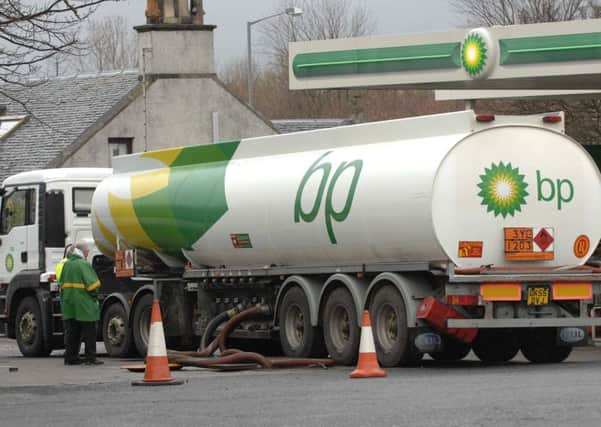BP returns to profit on rising oil prices and cost cuts


The group said it swung out of the red with replacement cost profits of $1.4 billion (£1.1bn) for the first quarter against losses of $485m a year earlier.
• READ MORE: BP remains in the red despite year-end crude boost
Advertisement
Hide AdAdvertisement
Hide AdA bounce back in oil prices saw Brent crude stand about 58 per cent higher than a year earlier in the first quarter, at $53.69 a barrel.
BP chief executive Bob Dudley said the year had “started well” for the group.
He added: “BP is focused on the disciplined delivery of our plans. First-quarter earnings and cash flow were robust.”
On an underlying basis, BP nearly trebled replacement cost profits to $1.5bn, from $532m a year earlier.
The better-than-expected figures came after the group saw a 5 per cent rise in production, boosted as the first of a raft of new projects came on stream.
Dudley said: “The first of our seven new upstream major projects has started up, with a further three near completion. We expect these to drive a material improvement in operating cash flow from the second half.”
The figures follow impressive earnings reports from US rivals ExxonMobil and Chevron last week as the industry benefits from a bounce back in crude prices, which had hit near 13-year lows early last year.
Advertisement
Hide AdAdvertisement
Hide AdRoyal Dutch Shell is also expected to post a leap in profits when it reports on Thursday.
First-quarter figures from BP come after it revealed last month it had slashed Dudley’s 2016 pay package by 40 per cent and cut his maximum earnings by $3.7m to see off a fresh shareholder rebellion.
Its annual report showed Dudley’s pay package was cut to $11.6m as the group looked to avoid a repeat of last year’s investor revolt, when almost 60 per cent of its shareholders voted against his 20 per cent pay hike.